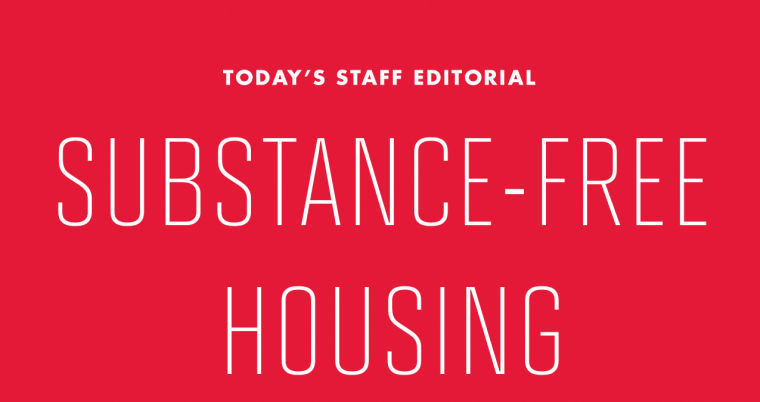
Substance-free housing
Faced with a ubiquitous mix of alcohol-fueled parties and recreational drugs on campuses across the nation, college students who have adopted substance-free lifestyles often can feel out of place.
This university’s Wonderful Awesome Students That Evade Drinking group aims to provide these students with a community of like-minded individuals. WASTED — “where the Terps who don’t drink alcohol [come] to party,” according to the organization’s Facebook page — have lobbied the Residence Hall Association this semester for a substance-free university housing option.
Students likely have heard college drinking and drug use statistics — ranging from sobering to alarmist in nature — bandied about since middle school, but even the bare-bones facts suffice in highlighting the prevalence of drugs and alcohol on and around college campuses.
About 4 in 5 students drink alcohol and about half of those students binge drink, or consume four to five drinks within two hours, according to the National Institute on Alcohol Abuse and Alcoholism. Compound that with drug use — about 21 percent of college-age adults used illicit drugs in 2012, according to a Department of Health and Human Services survey — and it’s clear why students who lead substance-free lifestyles might feel uncomfortable or like they are part of a minority on college campuses.
In the past, this university has demonstrated its commitment to providing housing options that meet students’ needs and living preferences. Prince Frederick Hall, set to open for the fall semester, will offer gender-neutral housing for LGBT students. The university long has offered single-gender housing, and the Jiménez-Porter Writers’ and Language houses provide housing options tailored to students’ academic studies.
Though WASTED is not a living-learning community and teetotaling students admittedly do not fall into the same category of traditionally marginalized minorities as LGBT individuals, the RHA nonetheless should not write off group members’ living preferences.
Some WASTED members have struggled with addiction, group members said, and others have expressed interest in substance-free housing because of religious beliefs, among other reasons. Such a housing opportunity could help these students combat peer pressure and express solidarity in an environment where drinking and drug use are otherwise commonplace.
In the Big Ten, which this university is scheduled to join in July, eight of the conference’s 12 schools have substance-free housing options. University President Wallace Loh and other administrators have cited desires to match Big Ten schools in other facets of higher education, and this move would allow the university to keep its housing on par with its soon-to-be conference peers.
WASTED’s greatest obstacle to overcome, it seems, lies in its relatively small size. About 70 group members have shown interest in substance-free housing, said Alex Stoller, RHA Resident Life Advisory Team chairwoman. In contrast, Prince Frederick Hall will add about 460 beds to the campus, and the Department of Resident Life expects to fill all of those spots.
RHA senators cited concerns over the number of students potentially interested in substance-free housing, and with housing space at a premium on the campus and WASTED’s membership at fewer than 100 students, those qualms are viable. Rather than simply dispel the group’s proposal, however, Resident Life officials should consider the feasibility of offering substance-free housing on one or more dorm floors, just as it has done with mixed-gender housing in the past.
This university’s efforts to provide students with living spaces where they can feel comfortable has been admirable so far, but WASTED’s call for substance-free housing highlights the truth that groups remain on the campus whose lifestyle preferences have yet to be addressed. Careful Resident Life and RHA consideration of resident needs — regardless of perceived importance or number of those affected — can continue to work toward giving students living spaces where they truly feel at home.



